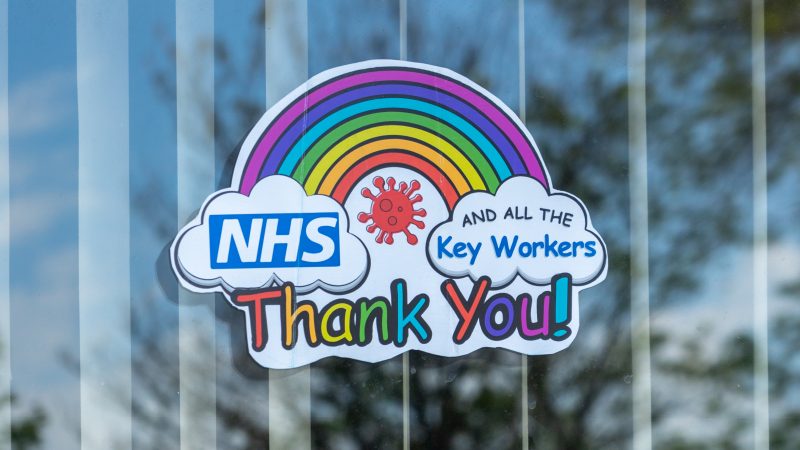
The TUC has warned that government policies are set to worsen child poverty – and revealed research showing that more than one million children of key workers are currently living below the breadline.
The trade union federation general secretary Frances O’Grady declared that “every key worker deserves a decent standard of living for their family, but too often their hard work is not paying off like it should”.
“The Prime Minister has promised to ‘build back fairer’. He should start with our key workers. They put themselves in harm’s way to keep the country going through the pandemic. Now, we must be there for them too,” she said.
“This isn’t just about doing right thing by key workers. If we put more money in the pockets of working families, their spending will help our businesses and high streets recover. It’s the fuel in the tank that our economy needs.”
The research produced by Landman Economics for the TUC found that in some areas more than a quarter of children in key worker households are living in poverty, with the North East of England showing the highest rate at 29%.
The North East is followed by London (27%), the West Midlands (25%) and Yorkshire and the Humber (25%). In total, the study found that there are 1,062,586 children of key workers living in poverty across the country.
Jonathan Reynolds cited the rising levels of child poverty under this government and stressed that most are in working families, adding: “A basic principle of our economy has to be that people are paid a fair wage they can raise their family on.”
“It is shameful that the very workers who got us through this crisis are in the firing line when it comes to poor pay and cuts to Universal Credit,” the Shadow Work and Pensions Secretary said.
“The government must immediately stop their cut to Universal Credit which will take £1,000 a year from millions of working families. Labour would replace Universal Credit, and introduce a living wage of £10 an hour for all.”
The government confirmed last week that the £20-per-week uplift to Universal Credit, introduced at the height of the pandemic last year, will not be extended beyond the autumn despite widespread calls to make it permanent.
Although a limited uplift, not available to those still on legacy benefits, it was described by a group of over 50 charities as a “lifeline” for many during the Covid crisis. But minister have claimed it was “always a temporary measure”.
Both Conservative MPs and Labour have urged the government to rethink the £5bn cut, while charities have warned that the decision will hit six million households across the country and push 200,000 more children below the poverty line.
The TUC has warned that the Universal Credit cut along with the public sector pay cap will likely worsen child poverty rates and “put the brakes on the nation’s economic recovery by curbing household spending”. It has called on ministers to:
- Raise the national minimum wage to £10 per hour immediately;
- End the public sector pay freeze give all public service workers a decent pay rise;
- Give outsourced public sector workers a real living wage and ensure parity with directly employed staff;
- Cancel the planned cut to Universal Credit; and
- Set out plans to increase child benefit above inflation each year this parliament.
According to the Child Poverty Action Group, 4.3 million children were living in poverty in the UK in 2019-20. This represents 31% of all children, or nine in a classroom of 30. The figure for children in single-parent households was 49%.
The campaign group found that 75% of children growing up in poverty lived in a household where at least one person is in employment, and that children from large families or from Black and minority ethnic groups were more likely to be in poverty.
Charities, and the Labour Party, have also called on the government to fully extend the free school meals provision over the summer holiday. Labour recently highlighted that eligible children could miss out on 24 million meals over the period.




More from LabourList
‘Hope starts young: Why Labour must tell the story of a better tomorrow’
LGBT+ Labour suspends AGM amid fears of legal action over trans candidates running for women’s roles
‘Hyperlocal messaging can help Labour win elections: Here’s how’